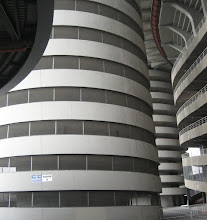There is nothing like a pristine playing field for footballers, the perfect pitch. Yet with the overscheduling of matches, I doubt any footballers have seen one in a very long time. This is particularly true of the pitch at the San Siro. Even before Ibrahimović's injury on Sunday, many have tied the increase in injuries at Milan and elsewhere to pitches that are subpar due to scheduling too many matches. If the pitches cannot heal, how do we expect our players to be healthy?
 |
| A casualty of turf wars |
The condition of the San Siro pitch was problematic for many years. According to Giovanni Castelli, who has been in charge of the San Siro pitch since 1990, they used to have to re-lay the pitch ten times per season before 2000. More recently, with the advances of hybrid turf, photosynthesizing lighting, drains, and maintaining a constant temperature, the pitch has been able to remain in better condition without having to redo the whole thing as often.
However, as Castelli pointed out, the only true solution is resting the pitch between matches. He said "You play too much, the grass fails to recover despite the maintenance. I understand that the calendar is clogged and there is very little time, but the breaks must at least be respected. The game and health are at stake."
 |
| Expensive players + an impoverished pitch = expensive injuries |
There was heavy criticism for the scheduling of two matches at the San Siro 24 hours apart for the first time ever as Inter played the Super Coppa final and Milan played their Coppa Italia Round of 16 match back to back on January 12th and 13th. Then for the first time ever in Serie A, Inter played Venezia on Saturday, and Milan vs. Juventus was played on Sunday, both at the San Siro just 24 hours apart. A total of six matches were played in ten days, actually.
Inter's Simone Inzaghi mentioned the poor conditions on Saturday after their match. He said, "The biggest problem both Inter and Milan face is the state of San Siro, as the turf is becoming unplayable for both of us. We could've done better, but honestly the turf is awful. We need to take action, it has never been this bad before."
 |
| Sure, Inter whine about everything, but maybe this time, someone should listen |
Of course, Inter got to play the first match both times the matches were scheduled back to back, and they are still complaining. The playing surface was so poor for the Juve match, we lost Ibrahimović to injury, a direct casualty of the condition of the pitch. Over the international break, they are going to completely redo the grass at San Siro, but there are another six matches scheduled over the next 15 days after that.
With FIFA pushing hard for a World Cup every two years and more tournaments expanding or being created all the time, let alone ridiculous propositions like the Super League, it seems that no one is listening to the players, player unions, or concerned fans at all. Money is their only focus. Milan in particular are all too familiar with injuries, and it seems that no one has any regard for the people who bring the beauty to the beautiful game.
 |
| A poor playing surface = poor matches |
Now, the pitches are suffering, too, directly impacting the quality of play, and, once again, the health and safety of the players. As if the cost of keeping the grounds was not high enough already, the cost to teams because of players who are injured because of the poor playing conditions is also impacting the clubs' finances directly. Since no one seems to care about the health and safety of the players themselves, and football is clearly all about making money, you would think that the powers that be would at least consider the financial ramifications of the playing fields. Instead, the perfect pitch is another casualty of overscheduling.
This post inspired by the music of The Prodigy's "Take Me to the Hospital"
 Reviewed by Elaine
on
Rating:
Reviewed by Elaine
on
Rating:
